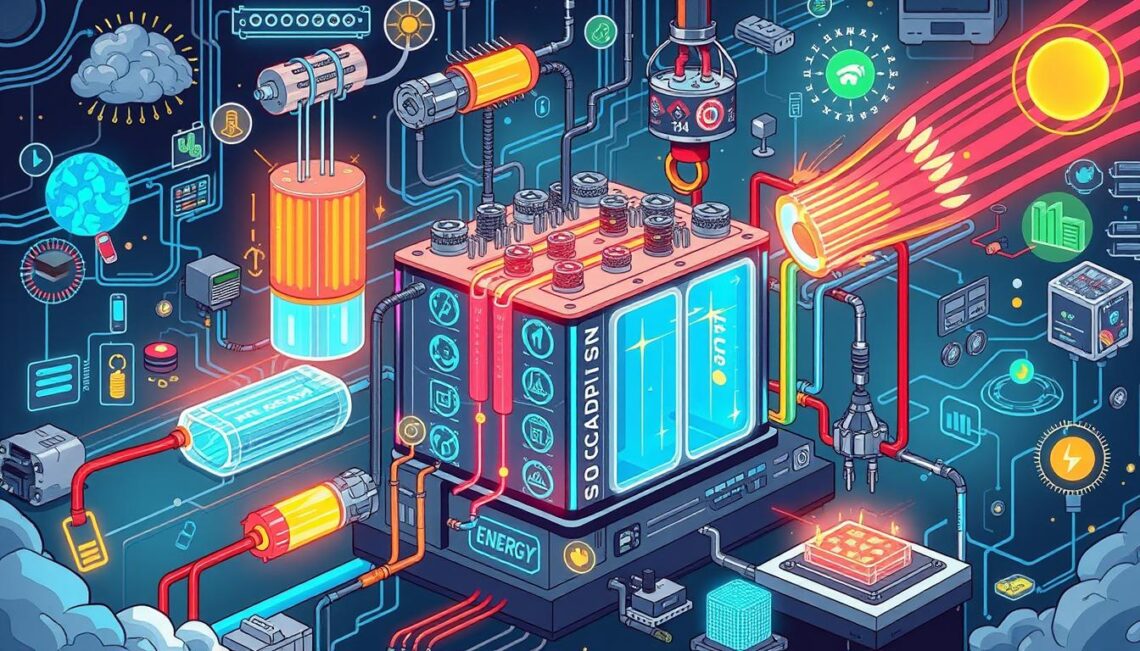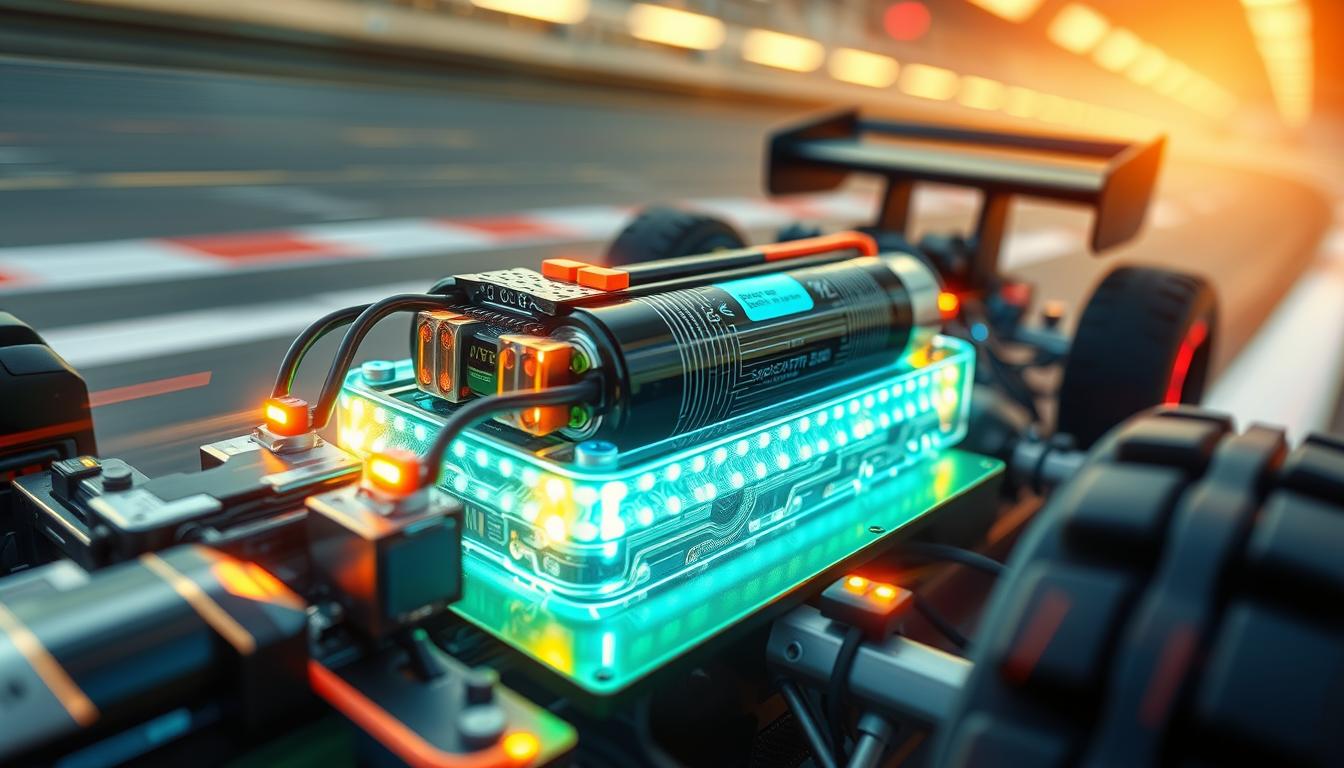As the demand for efficient energy storage technology grows, supercapacitors are becoming increasingly significant in the realm of RC power systems. Often called ultracapacitors, these advanced devices offer unique capabilities, particularly in providing rapid bursts of energy. With an eye on the future of RC systems, understanding how supercapacitors function and the benefits they deliver is essential for enthusiasts and professionals alike. This article delves into the mechanics and advantages of supercapacitors, highlighting their pivotal role in enhancing performance, efficiency, and longevity in remote control applications.
Understanding Supercapacitors and Their Benefits
Supercapacitors are pivotal components in the realm of energy storage. Supercapacitors defined encompass unique electrochemical devices designed to store energy efficiently by accumulating charge on electrode surfaces. Their ability to charge and discharge swiftly suits them for applications where high power is paramount over short durations. Leading brands such as Maxwell Technologies and Panasonic exemplify the advancements in supercapacitor technology, facilitating numerous charge-discharge cycles with minimal performance degradation.
What are Supercapacitors?
In the field of electrical engineering, supercapacitors represent a blend of the benefits of both traditional capacitors and batteries. They utilize electrochemical processes to store energy, resulting in significantly higher energy density compared to conventional capacitors. This innovative capacitor technology gives supercapacitors the upper hand in applications that demand storage efficiency alongside sustained power delivery.
How Supercapacitors Differ from Traditional Capacitors
The differences between supercapacitors and capacitors lie primarily in their overall performance metrics. Whereas traditional capacitors focus on rapid discharge, supercapacitors excel in both charge and discharge capabilities. They offer:
- Higher energy density, allowing more energy storage in a compact size.
- Enhanced efficiency for RC systems, contributing to improved performance during demanding tasks.
- Longer cycle life, supporting thousands of cycles without notable degradation.
This increased performance enables supercapacitors to deliver power in quick bursts, making them ideal for applications requiring instant acceleration.
Advantages of Using Supercapacitors in RC Power Systems
Incorporating supercapacitors within RC power systems presents numerous benefits. These advantages include:
- Rapid charging times that allow swift replenishment while in use.
- Improved power-to-weight ratio for enhanced maneuverability in RC vehicles.
- Capability to operate effectively across various temperature ranges, adapting to diverse environmental conditions.
- Extended lifespan which minimizes the frequency of component replacements.
The energy efficiency of systems utilizing supercapacitors contributes to optimal performance, reinforcing their value in advancing RC technology.

Supercapacitors Explained: The Future of RC Power Systems
As technology continues to evolve, supercapacitors display remarkable potential in powering RC vehicles. Their unique features and diverse applications are reshaping energy storage solutions. This section delves into the key attributes of supercapacitors and how they are revolutionizing remote control systems.
Key Features of Supercapacitors
Supercapacitor features contribute significantly to their growing popularity within various industries. These include:
- High Power Density: They can deliver substantial power in short bursts, ideal for high-performance applications.
- Rapid Charge-Discharge Capabilities: Supercapacitors charge and discharge quickly, making them suitable for applications requiring quick energy bursts.
- Excellent Thermal Stability: They maintain efficiency across various temperature ranges, enhancing their reliability in diverse environments.
- Low Internal Resistance: This characteristic minimizes energy losses, optimizing overall performance in power systems.
- Versatile Configurations: Supercapacitors can easily be arranged in series or parallel, allowing for customized energy solutions tailored to specific needs.
Applications of Supercapacitors in Remote Control (RC) Systems
The applications of supercapacitors in RC systems have gained traction, especially in the realms of remote control cars, drones, and other RC vehicles. Their ability to deliver high power output in brief intervals enhances performance. Some key applications include:
- Serving as primary power sources or supplements to traditional batteries in RC vehicles.
- Providing quick bursts of energy for rapid acceleration, crucial in competitive racing.
- Improving recovery times after high discharge rates, making them perfect for high-demand situations.
Companies like Traxxas and HPI Racing are incorporating supercapacitor applications into their products, highlighting an industry shift towards more efficient power solutions. As these technologies develop, their integration into future technologies remains promising.

The Future Trends and Innovations in Supercapacitor Technology
The future of supercapacitors is brimming with potential as researchers and engineers alike explore emerging technologies that promise to enhance energy storage solutions. One avenue of innovation includes advancements in materials science, notably the integration of graphene into supercapacitor designs. This novel material could significantly increase energy density while simultaneously lowering production costs, key challenges facing the industry today.
As global energy demands escalate, energy efficiency trends are shifting towards sustainable practices. Supercapacitors are finding their footing in renewable energy systems, such as solar and wind power. This integration not only optimizes energy usage but also supports the transition to greener technologies, making supercapacitors vital players in the future landscape of energy storage.
With continued research and development, supercapacitors are poised to redefine energy storage across various applications, from consumer electronics to industrial applications. Their versatility, combined with innovations on the horizon, promises to set a new benchmark, promising a powerful synergy with both existing and upcoming technologies in the world of energy.

